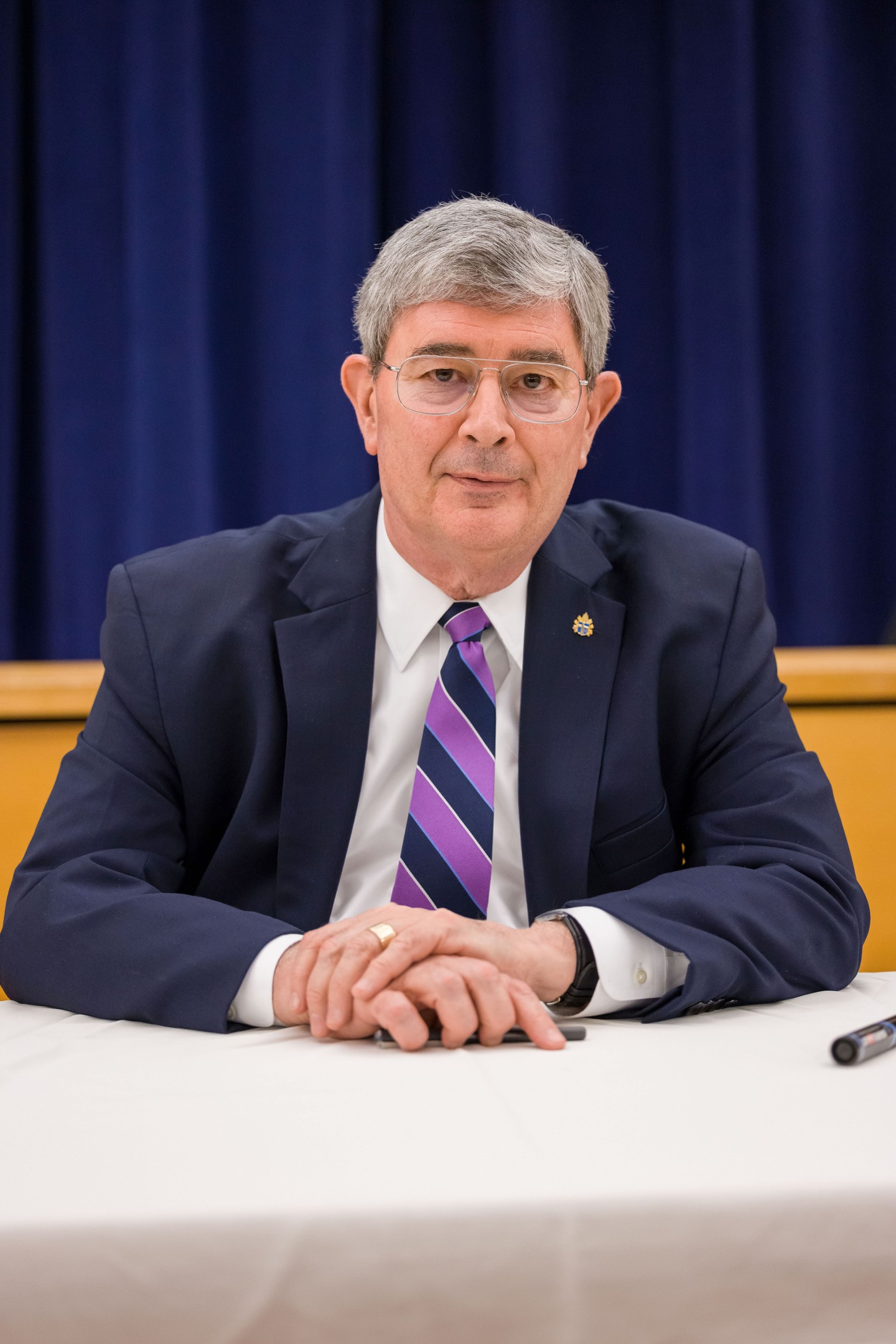By their vocabulary, you shall know them? Well, to a considerable degree. And in these early November days, when the Church celebrates all the saints in glory and prays for those who yearn to join them in the Father’s House, it’s instructive to ponder the vocabulary that dominated the just-completed first assembly of the Synod on Synodality for a “Synodal Church of Communion, Participation, and Mission.”
One eminent Synod father was jotting down vocabulary notes during his small-group “Conversations in the Spirit” and was struck by which words were used and which weren’t. He satirized both in the form of a two-part mock memo from the Synod general secretariat to the Synod membership.
First, The Words That Must Be Used in Every Intervention and Statement:
Synodality. Harmony. Symphony. Women. LGBTQIA+. Working together. Those excluded. Those on the margins. Spirit as protagonist. Women. LGBTQIA+. Insensitive parish priests. Backward seminarians. Sensitive, nice pope. Women. LGBTQIA+. Bleeding Earth. All are welcome. Listening. Discerning. Women. LGBTQIA+. Divorced and remarried. Poisoned seas.
Then there was the Non-Acceptable Vocabulary:
Salvation. Sin. Conversion of heart. Holiness. Unborn babies. Vocations. Marriage and family. Eucharistic renewal. Penance and fasting. Persecuted Christians. Religious freedom. Sunday Mass. Sacrament of Penance. Virtue. Parishes. Intellectual life. Sanctifying grace. Fatherhood. Heaven. Pope St. John Paul II. Pope Benedict XVI. One holy, catholic, apostolic Church.
My friend exaggerated, as we all tend to do when exasperated. But he didn’t exaggerate by much. And the Synod-2023 lexicon, in which a decidedly secular vocabulary displaced the Church’s distinctive language, was predictable, for it mirrored the vocabulary in the Synod’s Instrumentum Laboris (Working Document). There, the words “synodal” and “synodality” were used 342 times and “process” was used eighty-seven times, while “Jesus” appeared fourteen times. How can you have a serious “Conversation in the Spirit” absent the Jesus who, meeting the apostles after the Resurrection, “breathed on them, and said to them, ‘Receive the Holy Spirit’” (John 20:22)?
“Resurrection” was another word notably absent in the synodal discussions described to me by those participating in them. But what is a Church “in mission” unless it’s a Church proclaiming that Jesus of Nazareth was raised from the dead and thereby constituted Lord and Savior (Acts 2)? There were moments (and not a few moments) at Synod-2023 when it must have seemed to those Synod members most committed to the New Evangelization—a Church in mission proclaiming the Risen Lord Jesus Christ—that the Acts of the Apostles had never been written.
In both his popular and academic works of biblical exegesis, the Anglican scholar N. T. Wright has insisted that there was no form of early Christianity that did not proclaim Jesus as having been raised from the dead. None. Resurrection faith is the bottom line of Christian faith. Yet one bishop with extensive and successful experience in evangelization had to explain to one of his episcopal brothers, adrift in the fog of “inclusion” and “welcome,” that evangelization means more than saying “Come on in.” Evangelization means inviting souls lost in the cosmos to meet the Risen One, who, as John XXIII taught in his opening address to the Second Vatican Council, “still stands at the center of history and of life.”
The Church’s call is not a generic invitation to human fellowship. It is a very specific call, “inclusive” in that it’s addressed to everyone: Come meet the Risen Lord. Embrace his gospel. Become his friend. Be sanctified.
The call to conversion and sanctification was muted, at best, at Synod-2023. Yet the sanctification of the world and of us is the whole purpose of the Church. That is what we celebrate on All Saints Day: the victory of those who, having embraced Christ and the gospel, have been sanctified and now live in the light and life of the Thrice-Holy God. On All Souls Day and throughout November, we pray that those who have died but have not yet been fully purified of the dross that accumulates in every life may soon be cleansed and fully sanctified, so that they may live comfortably with the Trinity and the saints.
The purpose of the Second Vatican Council was to lift the Church from a defensive crouch and turn the Church’s institutions into launch-platforms for mission. Synod-2023’s dominant vocabulary did not reflect that evangelical purpose—although the representatives of the living parts of the world Church, who spoke in a distinctively Catholic vocabulary, did. Theirs should be the defining voice when the second synodal assembly meets in a year, and in the “synodal process” between now and then.

George Weigel’s column “The Catholic Difference” is syndicated by the Denver Catholic, the official publication of the Archdiocese of Denver.
George Weigel is Distinguished Senior Fellow of Washington, D.C.’s Ethics and Public Policy Center, where he holds the William E. Simon Chair in Catholic Studies.
First Things depends on its subscribers and supporters. Join the conversation and make a contribution today.
Click here to make a donation.
Click here to subscribe to First Things.
Image by Krzysztof Golik licensed via Creative Commons. Image cropped.
You have a decision to make: double or nothing.
For this week only, a generous supporter has offered to fully match all new and increased donations to First Things up to $60,000.
In other words, your gift of $50 unlocks $100 for First Things, your gift of $100 unlocks $200, and so on, up to a total of $120,000. But if you don’t give, nothing.
So what will it be, dear reader: double, or nothing?
Make your year-end gift go twice as far for First Things by giving now.


